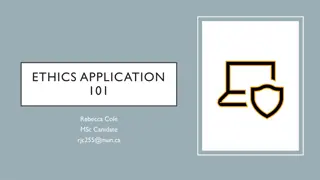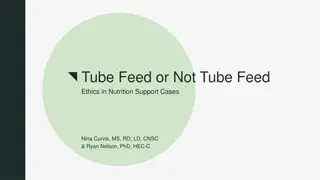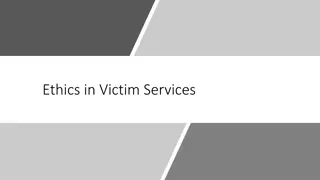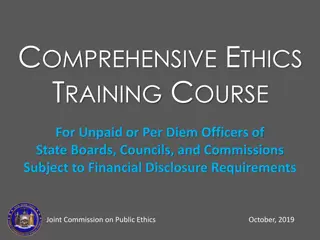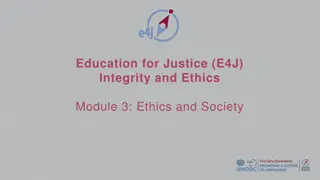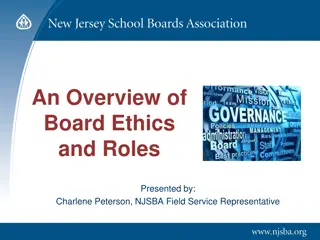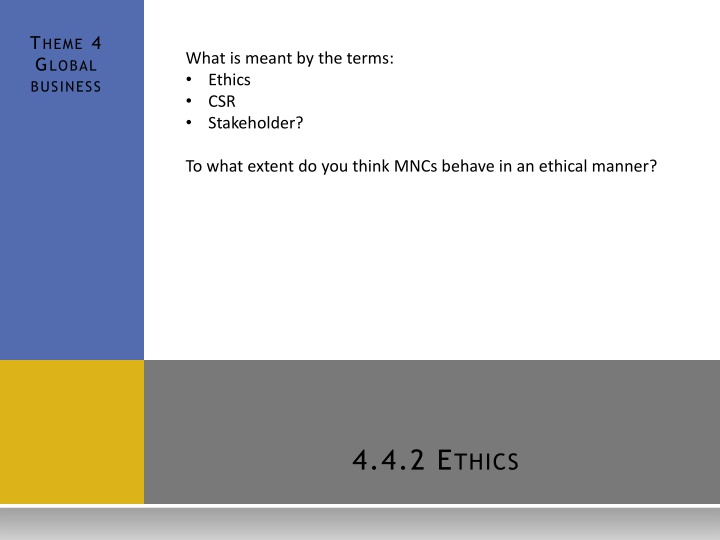
Ethics, CSR, and Stakeholders in Global Business
Explore the concepts of Ethics, CSR, and Stakeholders in the context of multinational corporations (MNCs). Delve into issues such as stakeholder conflicts, pay and working conditions, environmental considerations, supply chain ethics, and marketing practices. Reflect on the ethical behavior of MNCs and ponder over questions about profitability, societal impact, consumer welfare, environmental responsibility, and labor exploitation.
Download Presentation

Please find below an Image/Link to download the presentation.
The content on the website is provided AS IS for your information and personal use only. It may not be sold, licensed, or shared on other websites without obtaining consent from the author. If you encounter any issues during the download, it is possible that the publisher has removed the file from their server.
You are allowed to download the files provided on this website for personal or commercial use, subject to the condition that they are used lawfully. All files are the property of their respective owners.
The content on the website is provided AS IS for your information and personal use only. It may not be sold, licensed, or shared on other websites without obtaining consent from the author.
E N D
Presentation Transcript
THEME 4 GLOBAL BUSINESS What is meant by the terms: Ethics CSR Stakeholder? To what extent do you think MNCs behave in an ethical manner? 4.4.2 ETHICS
4.4.2 ETHICS In this topic you will learn about Stakeholder conflicts Pay and working conditions Environmental considerations: emissions waste disposal Supply chain considerations: exploitation of labour child labour Marketing considerations: misleading product labelling inappropriate promotional activities
ETHICS Stakeholder conflict Profit motive (shareholder concept) v. wider motives of other stakeholders (stakeholder concept) In pairs discuss the following questions: Profitability v. society! Do consumers benefit from greater choice or are they exploited? Do MNCs reduce the impact on the environment by producing closer to markets or worsen it due to food miles? Do employees benefit from greater training and working conditions or are they exploited by powerful businesses? Are global industries too powerful? Do MNCs uphold standards regardless of the country in which they operate in order to preserve the brand?
ETHICS Pay and working conditions Opportunity for MNCs to exploit local workers with low pay and poor working conditions Introduce western standards Should an MNC pay the average for the host country or a salary more in line with the domestic country? Create jobs How ethical are Primark? Plan an argument for and an argument against before reaching a conclusion
ETHICS Environmental considerations Emissions and waste disposal UK legislation is strict e.g. all publically listed companies have to report their greenhouse gas emissions and abide by laws on how waste is disposed but is this true in all countries? VW emissions scandal. Global impact of industrialisation Growth of e-waste
ETHICS Supply chain considerations: Exploitation of labour The International Labour Organisation (ILO) promotes fair and decent work for workers across society ILO mission and objectives. Pay, choice and working conditions to achieve social justice Responsibility of MNCs throughout the whole supply chain Child labour Exploitation of children who have no power Low wages Unacceptable conditions No education History of child labour. If it is no longer acceptable in our country should it be acceptable anywhere? Kidnapping from families The ILO s campaign to end child labour. Slavery
ETHICS Marketing considerations: Misleading product labelling In the UK this is governed by the Trade Descriptions Act but not applicable in other countries UK legislation includes labelling such as size/quantity, price, ingredients, endorsements, how, where and when made, health claims Its not just MNCs do you know what your food labels really mean? Stricter in certain industries e.g. food and pharmaceuticals Often pursued by pressure groups and consumer organisations such as watchdogs Inappropriate promotional activities Promoting directly to children Business etiquette or corruption? Cultural difference e.g. the culture of gift giving in China Promoting a life style that goes against cultural or religious difference
4.4.2 ETHICS In this topic you have learnt about Stakeholder conflicts Pay and working conditions Environmental considerations: emissions waste disposal Supply chain considerations: exploitation of labour child labour Marketing considerations: misleading product labelling inappropriate promotional activities




